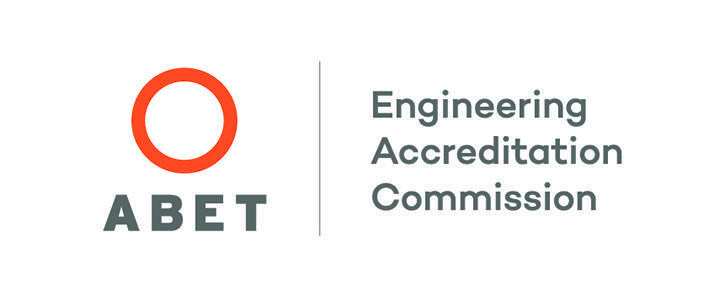The Bachelor of Science program in Systems and Industrial Engineering is accredited by the Engineering Accreditation Commission of ABET, https://www.abet.org, under the commission’s General Criteria and the Program Criteria for Systems and similarly named Engineering Programs and Industrial and Similarly Named Engineering Programs.
ABET accreditation is proof that a collegiate program has met the standards essential to produce graduates ready to enter the critical fields of applied science, computing, engineering, and engineering technology. Graduates from an ABET-accredited program have a solid educational foundation and are capable of leading the way in innovation, emerging technologies, and in anticipating the welfare and safety needs of the public. — ABET

Accreditation Details
Mission of the Systems Engineering BS
The mission of the undergraduate program is to equip students with the ability to participate productively in the many professional activities associated with engineering a trustworthy system that satisfies client needs. The term "system" is interpreted broadly to include information, telecommunication, defense, health delivery, transportation, energy or manufacturing systems, as well as corporate processes.
Program Educational Objectives
The program educational objectives of the Systems and Industrial Engineering program are what we expect our students to attain within three to five years of graduation. Graduates earning the Bachelor of Science degree in Systems and Industrial Engineering at George Mason University will:
- Use critical thinking, quantitative methods, and emerging techniques in systems and industrial engineering to address global societal challenges in a rapidly changing world.
- Apply systems and industrial engineering methods, using model-based and data-driven approaches, to the engineering of complex systems satisfying diverse stakeholder needs.
- Ethically and professionally collaborate in diverse teams to advance the objectives of their organizations, profession, and society in support of a just, free, and prosperous world.
Student Outcomes
1. An ability to identify, formulate, and solve complex engineering problems by applying principles of engineering, science, and mathematics
2. An ability to apply engineering design to produce solutions that meet specified needs with consideration of public health, safety, and welfare, as well as global, cultural, social, environmental, and economic factors
3. An ability to communicate effectively with a range of audiences
4. An ability to recognize ethical and professional responsibilities in engineering situations and make informed judgments, which must consider the impact of engineering solutions in global, economic, environmental, and societal contexts
5. An ability to function effectively on a team whose members together provide leadership, create a collaborative and inclusive environment, establish goals, plan tasks, and meet objectives
6. An ability to develop and conduct appropriate experimentation, analyze and interpret data, and use engineering judgment to draw conclusions
7. An ability to acquire and apply new knowledge as needed, using appropriate learning strategies.
Licensure Disclosure
This program has been identified by George Mason University as one that may lead to a career requiring professional licensure/certification. Federal regulations require Mason to disclose information as to whether this program meets/does not meet the educational requirements for licensure/certification in your state, or whether such a determination has not been made. Please consult our Licensure Disclosure Tool for the disclosure statement specific to your desired state/program combination.
